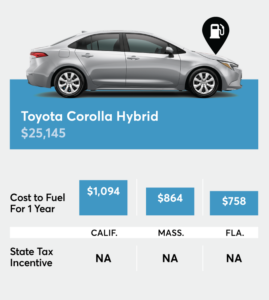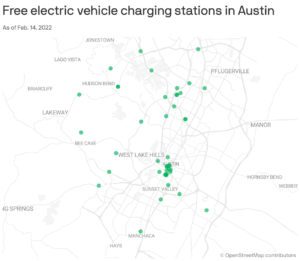The Chevy Volt Electric Car – General Motors Unveils Its Revolutionary Vehicle
5 min read On September 16th, General Motors Chairman and CEO, Richard Wagoner, unveiled the new Chevrolet Volt. On the outside, the Volt is a sporty, attractive sedan that is more than capable of turning some heads. But it’s what’s under the hood that has everyone talking. The Chevy Volt is an electric car, capable of traveling up to 40 miles without using a single drop of gas. Wagoner and others at GM also hope the Volt is also capable of single-handedly dragging the company out of the financial abyss that it has fallen into over the last couple years.
On September 16th, General Motors Chairman and CEO, Richard Wagoner, unveiled the new Chevrolet Volt. On the outside, the Volt is a sporty, attractive sedan that is more than capable of turning some heads. But it’s what’s under the hood that has everyone talking. The Chevy Volt is an electric car, capable of traveling up to 40 miles without using a single drop of gas. Wagoner and others at GM also hope the Volt is also capable of single-handedly dragging the company out of the financial abyss that it has fallen into over the last couple years.
With gas prices approaching – and in some places exceeding – $4.00 a gallon, consumers and automakers alike are aggressively pushing for alternative means of transportation. Many options are currently being explored, with gas-electric hybrids, hydrogen cars, and E85 Ethanol being among the most promising. The battery powered electric car, though, has always been a pipe dream of sorts, with several failed attempts already sullying its record. GM believes the Chevy Volt is poised to change the direction of electric cars and passenger transportation in general, though, due to its unique design.
The Volt uses a revolutionary lithium-ion battery design that provides large amounts of power storage, amazing reliability and durability, and enhanced safety and heat resistance uncommon to other lithium-ion batteries. On a full charge, the battery will allow the Volt to travel up to 40 miles, at which point the gasoline enters the equation. When the battery gets low on charge, a 1.4 liter 4 cylinder gas engine is then called into duty to power the electric engine. Note that the gas engine isn’t actually used to propel the car – only to power the electric engine. It is really more like a generator than a standard car engine. The use of the gas engine in conjunction with the electric engine gives the Volt an additional range of several hundred more miles.
All of this technology translates to some very impressive performance. The battery powers an electric motor that supplies the Volt with surprisingly adequate horsepower (160hp), allowing it to go from 0-60 in around 9 seconds – more than 2 seconds faster than the Toyota Prius1. In addition, the electric motor is almost completely silent. When you pair the silent engine with the extreme low drag coefficient of the Volt, you get an extremely quiet ride.
While the performance is a nice surprise, most people in the market for the Chevy Volt will be more concerned with its fuel economy. According to GM, studies have shown that almost 80% of Americans drive less than 40 miles a day2. For those people, the Volt would represent a complete break from gasoline dependence since the gas engine would never even kick on during the course of their commute. Once the 40 mile point is exceeded and the gas engine is enabled, fuel economy is still impressive at around 48mpg for each additional mile traveled. The actual miles per gallon a driver will achieve with the Volt depends upon how long they drive and how often they recharge their battery. If a driver recharged every 60 miles, they would be getting well in excess of 100mpg.
Despite the Volt’s impressive statistics and groundbreaking technology, there are two large hurdles it will need to overcome in order to gain widespread acceptance. First is the concern over the mileage rating being assigned to it by the EPA. Due to confusion over how to label the car – is it a gas-electric hybrid or is it an electric vehicle? – the EPA has assigned the Volt a mileage rating of 48mpg3. They arrived at this number because they requested that the battery be kept at or near full charge during the duration of the test. GM has argued that this rating is unfair and doesn’t accurately represent the fuel economy the vast majority of people will experience when driving the Volt. They have asked for different rules or different classifications to be applied to the Volt in order to more closely reflect the car’s gas mileage.
The second obstacle that is poised to stop the Chevy Volt from flying off of showroom floors is its price. GM executives have been reluctant to place an exact price tag on the Volt but estimates have consistently been in the range of $40,000. While Americans have become increasingly incensed at the price of gasoline, it remains to be seen whether they will pay such a high premium for an electric car when they can buy a similarly equipped gasoline car for $10,000 or $15,000 less.
One thing in GM’s favor when it comes to the subject of price is the opportunity for federal tax credits. There is legislation currently making its way through the legal system that would offer sizeable tax credits – up to $7,5004– to consumers who purchase plug-in hybrids that hold at least six kilowatt-hours of electricity (the Volt stores approximately 16). Those tax incentives could be just what GM needs to offset the higher cost of the Volt and entice uncommitted buyers into making a purchase. The legislation is currently facing some opposition from Toyota (protecting the interests of its Prius hybrid, which only stores 1.3 kilowatt-hours of electricity), though, and a successful outcome is not guaranteed.
In conclusion, the unveiling of the Chevrolet Volt is exciting news – both for General Motors and for consumers who are tired of being gouged at the pump. The chance for gas mileage ranging from 50mpg to infinity has many people chomping at the bit to get their hands on the Volt. Based on GM’s announcement, though, they will have to wait until the end of 2010 at the earliest to get their hands on one. In the meantime, GM will have its hands full with the EPA and the federal government in order to ensure that the Volt will be both attractive and affordable for the widest array of people.
Sources
1. www.businessweek.com/lifestyle/content/sep2008/bw20080916_356100.htm
2. www.time.com/time/business/article/0,8599,1841374,00.html
3. reviews.cnet.com/8301-13746_7-10037173-48.html
4. wot.motortrend.com/6298041/industry-news/volt-watch-toyota-opposes-tax-credit-designed-for-volt/index.html



